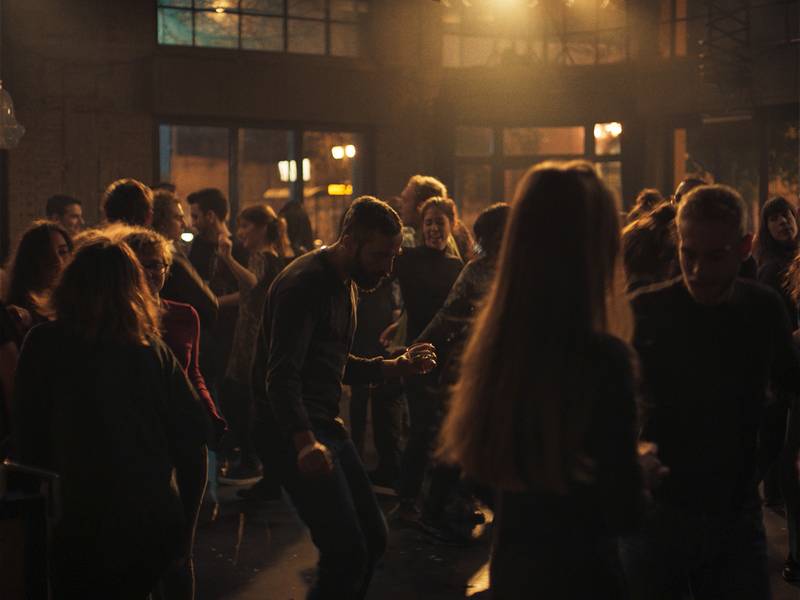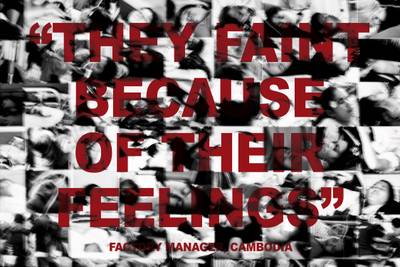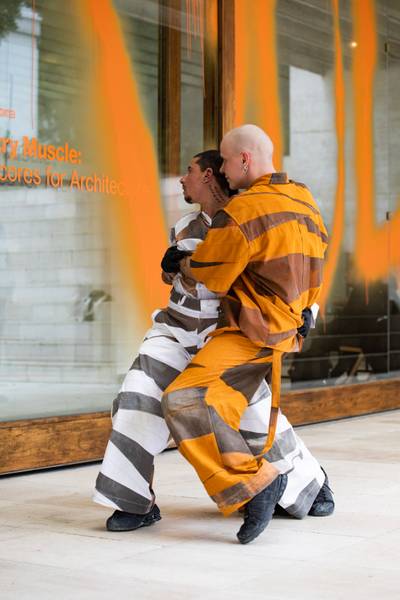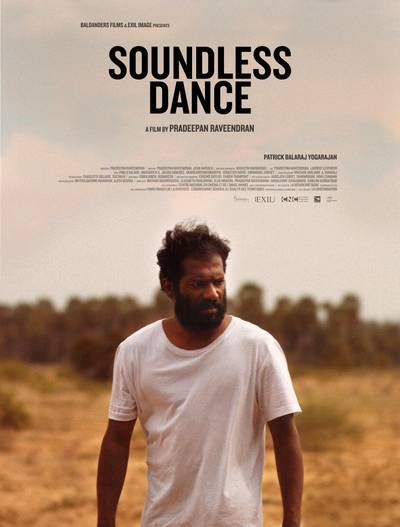

Nadezhda Atanasova was born and raised in Bulgaria. She moved to Finland in 2016 where she eventually started pursuing a career in film. She is currently studying acting in Actors Academy Finland while also working on her short film production.
Apples | Directed by Christos Nikou | Duration: 90 minutes | Language: Greek
Apples (2020) is the feature debut of Greek director Christos Nikou. Nikou has previously worked as an assistant director at Yorgos Lanthimos’s Dogtooth - the film that marked the emergence of the Greek Weird Wave. The Greek Weird Wave is a cinematic movement that came to being during the late 2000s financial crisis. It is characterized by representations of emotional alienation and implausible scenarios being perceived as casual, as well as an overall exploration of political, cultural and societal issues in an unsettling manner. While the influence of the Greek Weird Wave’s father is clearly detectable in Nikou’s Apples, the film shines in a light of its own as it is marked by an atypical for the genre sense of vulnerability. Despite its relevant theme, the film was in fact produced prior to COVID-19.
Apples takes place during a fictional pandemic that erases people’s memories on a random basis. Such is the case of the main character, Aris, who is struck by oblivion while riding the bus. Once a person has forgotten, they are taken to the hospital and usually claimed by their loved ones. When nobody comes looking for Aris, he is enrolled in a reintegration programme where he is given the task of performing various activities and documenting them in photographs.
The story takes place in a universe where warmth and coldness are curiously entwined. Human interaction is strange and robot-like, as is typical of the Greek Weird Wave. Individuals, however, are not frigid in and of themselves; it is society that makes them cold. This strange phenomenon arises from the relationship between society and identity. Identity is an external concept rather than an internal one. In society, humans are largely defined by their names, ages, and life paths. The fragility of these identity constructs, however, becomes evident as we see that once they are erased through oblivion, the person continues to exist. Upon Aris’s arrival at the hospital, he is given a sequence number. Is that really any different than a name? As we observe people with no memory or identity, we cannot help but ask: what does it mean to be human? Are you an identity, or are you a feeling, a being? Who are we without our memories? Are we still valid? Are we still human? Feelings are present, and thoughts are past, and too much reference to the past can destroy the relevance of the unique present, thus building a prejudiced society immune to change.
While having dinner at the hospital, Aris is given an apple by his roommate, who doesn’t want to eat it because he cannot remember whether he likes apples. This exchange is a pure representation of the film’s main theme. It is the dependence on literal memory that has made society mechanical. Even though modern technology is not present in the film, Aris’s documentation of his experiences by taking pictures is largely representative of social media. In an interview, Nikou himself stated that he wrote the screenplay while dealing with his father’s death. Throughout the time of his grief, he realized that we enable contact with our deceased loved ones through our memory rather than through any photographs we may have of them. Natural memory is subjective and documented; artificial memory is objective. Photos, and overall, visual documentation, have become a way for us to not just reveal, but also construct our external identity. It provides a pragmatic, logical representation rather than an emotional one. However, it is impossible to truly document experience, just as it is impossible to document emotion. In real life, the formation of memory depends on the emotional intensity of experience. Selective, non-linear memory is just as beautiful as the spontaneity of life because it is pure and devoid of unnecessary detail. Sexual acts, when presented too literally, can be unattractive rather than erotic. The same could be said for experiencing sex while thinking too much and feeling too little. When observing something indefinitely, it is not pure anymore because the detail is never perfect.
Contrary to popular belief, a purely objective outlook can often lead to unrealistic conclusions precisely because it is too devoid of relatability. Upon seeing the Texas Chainsaw Massacre, a woman tells Aris that if she were in the shoes of one of the characters, she would have surely managed to escape. It is often easy to imagine how we would have reacted in certain situations, but the subjectivity of real life alters these expectations dramatically, as there are actual emotions involved. For instance, running away from a chainsaw-carrying psychopath would probably be much easier if the feeling of fear did not exist, and our only focus was the literal action of the escape itself.
Last but not least, the film deals with the concept of loneliness. Are we meaningless when we are alone, and does being alone necessarily mean being lonely? Loneliness can be much harsher when we are forced to partake in society against our will. Being alone, on the other hand, does not necessarily mean being lonely. Being cut off from society, on the other hand, places us in a state of existence in which we have less of a need for an identity.Is not having anyone to share your memories with equal to losing your memory? If no one is there to verify your existence, is it as though you never existed?
As a film, Apples is deeply layered, thus providing two ways in which it can be viewed—with or without conscious analysis. When analysed, it is insightful and serves as a not too on-the-nose critique of the modern stiffness of society. Upon looking closely, one might even catch a plot twist. Without analysis, it feels very much like a refreshing cold shower.







